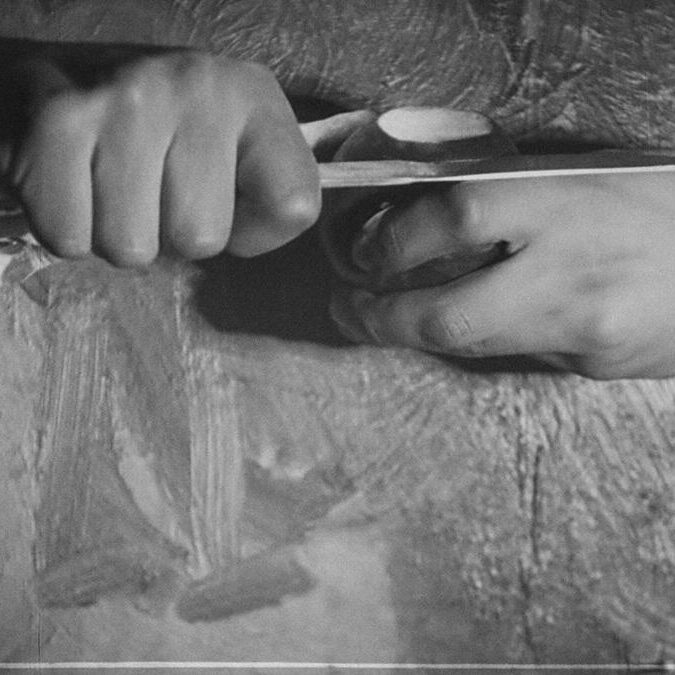In 1940, Stefan and Franciszka Themerson’s celebrated experimental anti-fascist film poem, Europa (1931), was looted by the Nazis from the Vitfer Film Laboratory in Paris and destroyed. Or so it was thought. Then, in 2019, a copy was discovered at the German Federal Archives in Berlin, with the recovered film finally screening again for the first time in more than 80 years at this year’s BFI London Film Festival.
A vivid, twelve-minute, black and white compendium of experimental techniques, Europa blends cameraless photography – produced on a ‘trick table’ of glass covered with tracing paper – with graphic animation and filmed footage of actors. Watching it, I think of the Themersons’ contemporary, Sergei Eisenstein, who argued in ‘A Dialectic Approach to Film Form’ (1949) that film must adopt radical formal strategies, such as montage, to engage audiences in Marxist revolution. The actors’ stark gestures are reminiscent of their theatrical contemporaries in Germany, working on the plays of Bertolt Brecht. The cameraless animation recalls both Fernand Léger’s short film Ballet mécanique (Mechanical Ballet, 1924) and filmmaker Lotte Reiniger’s striking, cut-out animations of the 1920s. In other words, a transnational, interconnected, continent-wide conversation and exchange comes into view: not just the stylistic strategies implied by the term ‘modernism’, but the radical politics, too, including ideas around technology, language and artistic exchange.
Published online Jan 22, 2022. Originally published in Frieze 224 (Dec 2021)

